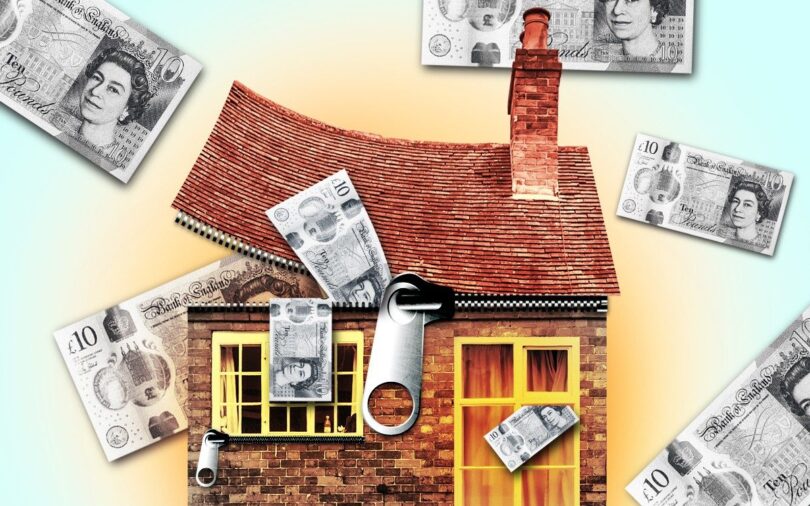House prices have fallen for the fourth month in a row as the real estate market goes through its worst period since 2008.
According to Nationwide, average sales prices this month were 0.1 percent lower than in November, at £262,000.
The drop has pushed prices 2.5 percent below their August peak and marks the fourth consecutive month-on-month drop.
Prices are still 2.8% higher than a year ago, but the annual rate is expected to turn into a decline in 2023 due to the recession and higher interest rates.
Joshua Ellard, of London-based broker Finanze, said the index showed the shift to a buyer’s market was well underway.
See also Ambulance services prepare for ‘hangover’ after 999 calls plummeted during strikes
He said: “Demand for housing slowed in 2022, with much of the contraction resulting from increased mortgage costs, high inflationary pressures weighing on buyers’ pockets and falling real wages.
“Unfortunately, the outlook did not change in December, with further downward pressure on prices.”
According to Matthew Thompson of Chesterton’s estate agents, there were fewer appraisals in December than in previous months due to the holiday season.
He added: “This will lead to fewer homes coming onto the market in the first three months of 2023, which will inevitably lead to more limited choice and more competitive market conditions for buyers.”
See also Childhood leukemia likely caused by common infections such as flu
Rober Gardner, chief economist at Nationwide, said buyers will likely wait until the broader economic outlook improves in the new year to enter the market as lenders.
He said: “While financial market conditions have stabilised, mortgage rates are taking longer to normalize and housing market activity is showing little sign of recovery.
“It will be difficult for the market to regain much momentum in the near term as economic headwinds intensify, real incomes continue to fall and the labor market is expected to weaken as the economy shrinks.”
Mortgage rates have fallen from the punitive levels reached in the immediate aftermath of Liz Truss’s disastrous mini-budget, meaning most experts now expect a dip in home prices rather than a full-blown crash.
See also Race for the Golden Boot, most assists and most hat-tricks – Qatar World Cup 2022 statistics
Average fixed-term interest rates rose above 6 percent as markets were shaken by the then prime minister’s plan to increase government borrowing. They have now fallen to 4 pc.
Mr Gardner said: “Longer-term interest rates, which underpin mortgage pricing, have returned to pre-mini-budget levels.
“If this continues, it should feed into mortgage rates and help improve affordability for potential buyers, as well as solid income growth, especially when combined with weak or negative home price growth.”

































